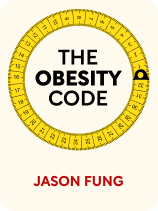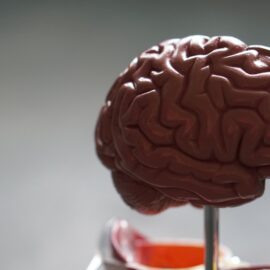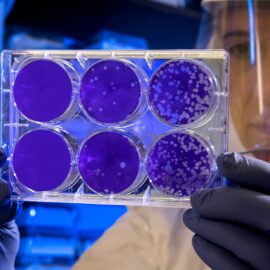

This article is an excerpt from the Shortform book guide to "The Obesity Code" by Jason Fung. Shortform has the world's best summaries and analyses of books you should be reading.
Like this article? Sign up for a free trial here .
How do carbs contribute to weight gain? What kind of carbs should you avoid?
Carbs are vilified because of their potential to raise your levels of insulin, which is a fat-storage hormone. However, not all carbs are created equal. Vegetables consist mostly of carbs, but they are good for you because they contain vitamins, minerals, and fiber. The kind of carbs you should avoid are refined carbs and added sugars.
Here’s what you need to know about carbs and weight gain.
Processed Carbs
When it comes to carbs and weight gain, the science is complicated. Not all carbs are created equal. Highly refined carbs are the worst because they have been stripped of any fiber, fat, protein, and micronutrients that you’d find in the whole food. (White wheat flour is the prime example.) Because they’ve been processed into a fine powder, the digestive system rapidly absorbs them. This rapid absorption causes a sharp spike in blood glucose levels, which in turn spikes insulin levels. These spikes underlie the development of chronically high insulin levels.
In addition to causing insulin spikes, processed carbs encourage overeating. Fung asserts that because refined carbs have been removed from the whole-food context from which they originate, our bodies have no satiety signals associated with them. In other words, they lack the protein, fat, and fiber that help you feel full. This is why you can snack for hours without feeling satiated—refined carbs aren’t filling. Meanwhile, they provide little to no real nutrients.
(Shortform note: In Salt Sugar Fat, Michael Moss reports that major food producers—including General Mills, Kraft, Kellogg, and Unilever—have intentionally engineered processed foods to produce the effects Fung describes. By manipulating the chemical structures of salt, sugar, and fat, these corporate giants have optimized foods for taste and profit. Recounting a 1999 meeting of top CEOs from the major players, Moss describes one executive’s belief that consumers “bought what they liked, and they liked what tasted good.” Unfortunately, what “tastes good” has come at the expense of nutrition and public health.)
Added Sugars
In addition to the problems found in all processed carbs, Fung explains that added sugars, such as table sugar and high fructose corn syrup, will severely damage your health.
These sugars are dangerous because they contain fructose, a form of sugar that originates from fruits and vegetables. While every cell in the body can use glucose for energy, only the liver can process fructose. When you consume a high amount of fructose, such as from soda or candy, that sugar goes right to your liver. As Fung describes, a high, concentrated amount of fructose quickly overloads your liver, which races to convert it into glucose and fat.
(Shortform note: While fructose is deadly when concentrated, health experts generally agree that you can safely enjoy fruits. Whole fruits contain fiber and water that balance out their sugar content. Since fruit is filling, it’s difficult to eat so much that you suffer negative effects from the sugar. However, fruit juice and smoothies can disrupt this balance: They strip away the fiber and make it possible to consume much more fruit than you would if it were whole. So in general, stick to whole fruit and avoid juices, especially those with added sugars.)
Before long, high fructose consumption causes fatty liver, a condition wherein your liver is overstuffed with fat and sugar. To compensate, your liver becomes insulin resistant, requiring more insulin per unit to continue taking in fructose.
As we’ve explained, insulin resistance contributes to chronically high insulin levels: Resistance leads to increased levels, which leads to more resistance, and so on in a self-reinforcing feedback loop that drives obesity. So added sugars, especially fructose, contribute to obesity. Note that this isn’t a problem of excessive calories, but a problem with the nature of the food.
(Shortform note: Fatty liver occurs in two varieties: alcoholic fatty liver disease (AFLD) and non-alcoholic fatty liver disease (NAFLD). The disease progresses through four stages, becoming increasingly severe until it culminates in cirrhosis, a serious condition of liver scarring and failure that can cause jaundice, brain fog, nausea, and weight fluctuations. Studies on rodents have shown that high fructose corn syrup causes fatty liver; however, a 2021 study on pigs, a larger mammal, found that a four-week diet of 60% fructose did not induce fatty liver.)

———End of Preview———
Like what you just read? Read the rest of the world's best book summary and analysis of Jason Fung's "The Obesity Code" at Shortform .
Here's what you'll find in our full The Obesity Code summary :
- Why everything we were taught about obesity is wrong
- The theory of obesity as a hormonal disorder that causes overeating
- Why dieting doesn’t work and exercise actually has little impact on weight loss






